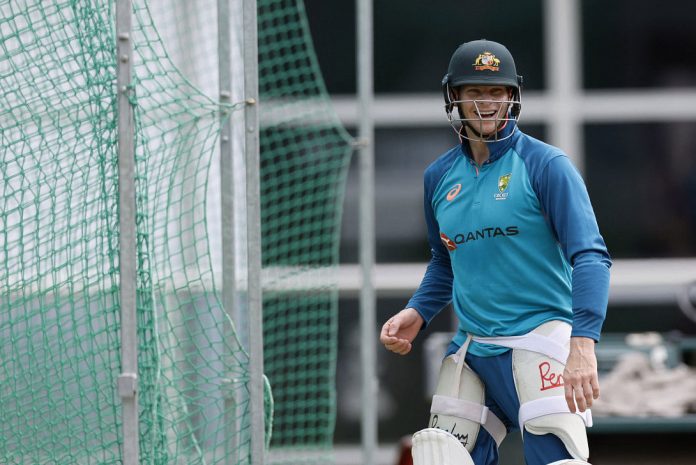PHOTO: REUTERS
When Australia’s Steve Smith last played a Test match at Headingley he was just one red-ball cap into his celebrated career and thought of mainly as a leg-spinner.
But when Smith takes the field at Yorkshire’s headquarters on Thursday for the third match of the Ashes series he will be winning his 100th cap as arguably the outstanding batsman of his generation.
In addition to Don Bradman, whose Test batting average of 99.94 has proved an unassailable landmark in the 75 years since the Australia great retired, only three other men have played more than 20 Tests and maintained an average over 60.
But Smith, whose current mark stands at 59.56 — higher than of his contemporaries — could join South Africa’s Graeme Pollock, West Indies’ George Headley and England’s Herbert Sutcliffe by the time he calls it a day.
The now 34-year-old made his Test debut during the 2010 neutral series against Pakistan in England, where as a teenager he had played club cricket before making 2nd XI appearances for both Kent and Surrey.
Smith was also England qualified through his English-born mother, not that there ever was much chance of the Sydney native switching allegiance.
“Mum has still got an English accent,” Smith told the BBC. “The roots are there, but my allegiance is to Australia.
Against Pakistan in 2010, Smith batted at No 8 and bowled 21 overs of leg-spin, taking three wickets. By his count, he was one of the 14 spinners Australia tried in filling the void left by the retirement of the outstanding Shane Warne and the emergence of current number one Nathan Lyon.
“I really only bowled to be involved in the game as much as I could be,” he said. “Batting was what I always wanted to do.”
And that is what he has done ever since, scoring more than 9,000 Test runs, including 32 hundreds — the last during Australia’s 43-run win in the second Test at Lord’s last week that left the tourists 2-0 up with three to play in the Ashes campaign.
It was his 12th hundred against England — only Bradman has more in Ashes cricket.
Smith’s technique, which arguably features more moving parts than a Swiss watch and a series of flamboyant leaves, is not something to be found in any coaching manual.
And while many a batsman has been obsessive about their kit, few have gone to the lengths of Smith, who puts tape over his boots so as not to be distracted by the sight of his laces.
Yet, importantly, at the moment of impact he is still and usually in an orthodox position.
“I look back at the footage and say ‘what was I doing in that moment?'” he said. “It’s good I don’t know what I’m doing when I’m out there. I’m just letting my natural instincts take over.”
Smith’s otherwise impressive career was derailed in spectacular fashion when, as Australia captain, he received a year-long ban for his role in the 2018 ball-tampering scandal in Cape Town.
Yet it is a measure of his resilience, as well as skill, that despite being booed repeatedly by England fans on his return at Edgbaston he scored twin hundreds as Australia won the first match of the 2019 Ashes.
That meant the sound of the Lord’s crowd turning on Australia on Sunday following the disputed stumping of Jonny Bairstow was nothing new to Smith.
“I’m used to it when I go around this country,” he explained.
“I said to the boys at one stage ‘welcome to my life’.”
Smith misssed the 2019 Ashes Test at Headingley, where England enjoyed a thrilling one-wicket win thanks to Ben Stokes’s astonishing unbeaten hundred, after being concussed by a bouncer from Jofra Archer at Lord’s.
That series ended as a draw, with Australia still searching for a first Ashes campaign win in England since 2001.
“It is something that has been on my bucket list, to win an Ashes series in England,” said Smith. “What a way to top it off, if I could do it in my 100th game, it would be special for sure.”



